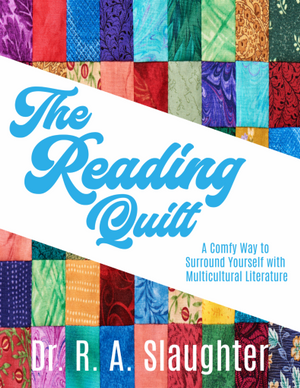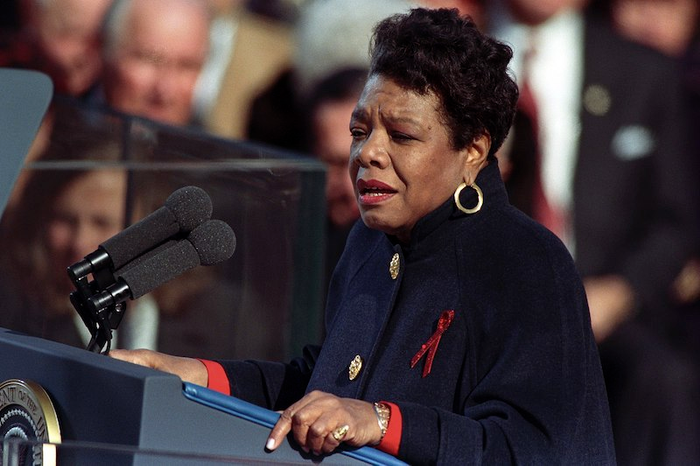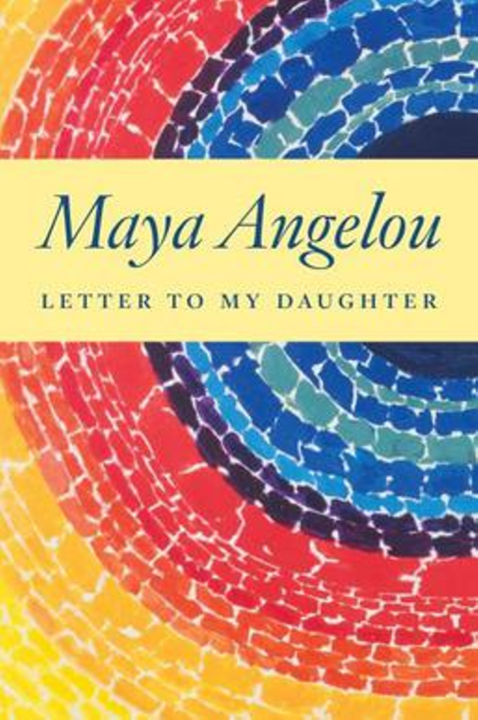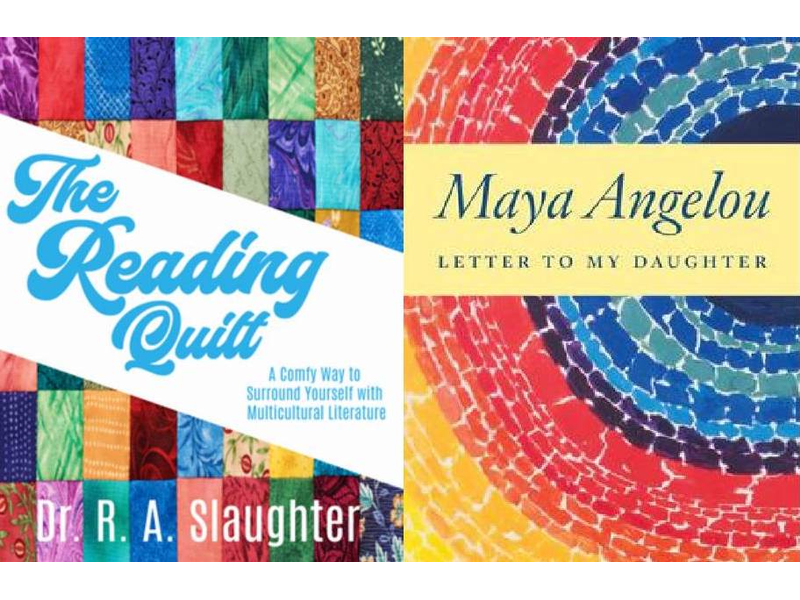The “Mother-daughter relationship” is a phenomenon that often baffles psychologists with its many layers, like an onion. Often characterized by psychologists as the most significant relationship a woman will ever have, the mother-daughter relationship is detailed in movies, books, and even songs.
Many psychologists report that it is not uncommon for a woman to spend countless hours in therapy to unravel how the relationship shaped the woman she has become.
In an article in Psychology Today, author Peg Streep details what she describes as “eight toxic patterns” in mother-daughter relationships. Often described as combative or unhealthy, these patterns are not the sentiments of Mother’s Day cards. Margarita Tartakovsky’s article in Psych Central offers several ways moms and daughters can extend the olive branch to each other.

Each month “The Reading Quilt” provides a short review of a book that a teacher may use to spark conversations about culture and race, along with a learning activity that may help students understand human behavior. Using the acronym QUILT, Slaughter offers readers information about the Quality of writing, Universal theme, and Imaginative plot, a mini Lesson plan, and Talking points that stem from the book’s premise. This month, a “volume of absorbing stories and inspirational wisdom” by Maya Angelou is featured.
Maya Angelou

Image: Maya Angelou reciting her poem “On the Pulse of Morning” at President Bill Clinton’s inauguration in 1993. Source: Wikimedia Commons
Maya Angelou, born on April 4, 1928, in St. Louis, Missouri, spent much of her childhood with her paternal grandmother Annie Henderson in a tiny town called Stamps, Arkansas. Angelou, who died on May 28, 2014, spent her childhood in poverty. Despite her meager financial circumstances, Angelou always set her sights beyond her current reality and rose to fame as a civil rights activist, memoirist, singer, and poet. Angelou’s captivating and inspirational poems endeared her to many influential people, including Martin Luther King, who asked Angelou to join him at The Southern Christian Leadership Conference (SCLC) in 1959. King, who served as president of the SCLC while Ralph Abernathy was the program director, asked Angelou to serve as the northern coordinator.
Long after her time with King, Angelou’s civil rights work and poetic acumen continued to dazzle influential people, including residents of The White House. In 1974, Gerald Ford appointed Angelou to the Bicentennial Commission. Jimmy Carter followed suit and named Angelou to the Commission for International Woman of the Year. Some people would agree that Angelou seemed to become a household name when President William Clinton asked Angelou to write and deliver a poem at his inauguration on January 20, 1993. “On the Pulse of the Morning” marked Angelou as the second person in history to recite a poem at a presidential inauguration.
A few years later, in 2010, President Barack Obama bestowed on Angelou The Presidential Medal of Freedom. Despite an incredible and influential body of work as an activist and author of I Know Why the Caged Bird Sings, Angelou is fondly known as Oprah Winfrey’s former confidant.

Image: Cover art, Letter to My Daughter Source: Wikimedia Commons
Quality- In her book Letter to My Daughter (Random House, 2008), Angelou details her life as a young mother to a daughter she never had. A collection of essays, the book speaks to the young women Angelou encountered throughout her travels. Angelou is an incredible storyteller who intertwines autobiographical tidbits with lectures to her “daughter” that sound like a day at the spa with Angelou if the essays were read aloud. Angelou offers stark advice on a host of subjects, including personal style. With humorous intent, she writes, “that raggedy hairstyle may be trendy, but it is also unattractive.”
Universal theme- Angelou reveals much of herself in this collection of essays. A glimpse into her tumultuous past, she provides her readers with the gory details of her growing pains stemming from her life in Arkansas.
Imaginative plot- Through eloquent descriptions of her life experiences, Angelou offers her readers hard truths about “adulting,” including trying desperately to navigate a complicated sexual relationship with a lover. The compromised relationship produced Guy Bailey Johnson, who died on February 16, 2022.
Lesson plan- Peppered throughout many essays, Angelou includes history-maker names and famous events. These elements make the book a perfect catalyst for meaty discussions in any history class.
Talking points- Angelou’s essays are rich with descriptions of how mother and daughter relationships can become complicated with feelings of love, jealousy, and bitterness.
- In her book A Letter to My Daughter, Angelou writes, “I can be changed by what happens to me. But I refuse to be reduced by it,” how do these words relate to you as a female and the #Me Too Movement?
- “I may never be known as a philanthropist, but I certainly am a lover of mankind, and I will give freely of my resources.” How does this quote from A Letter to My Daughter define Angelou’s mark on history?
- “One person, with good purpose, can constitute the majority.” In what ways can this quote speak to a budding civil rights activist?

Dr. R. A. Slaughter’s (Doc) textbooks Turning the Page: The Ultimate Guide for Teachers to Multicultural Literature, and Turning the Page: A Guide to Securing Multicultural Literature for Schools, both published by Rowman & Littlefield and available in all bookstores, have brought Doc global recognition. For more information, log onto DrRachelSlaughter.info, email literacyuniverstiy@gmail.com, or check out “The Reading Quilt” talk show, every Monday, at 3:30pm starting in April, on PhillyCam.





